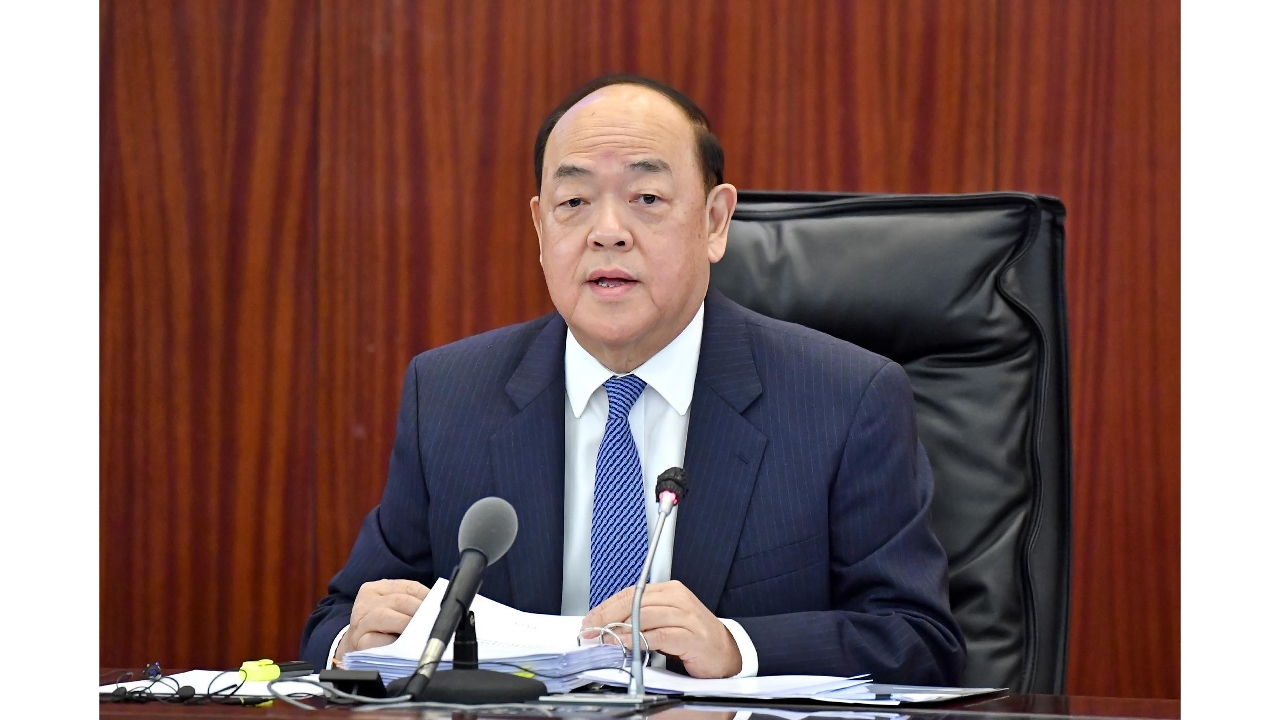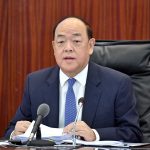
The Chief Executive, Mr Ho Iat Seng, said the Government was sparing no effort in attracting a greater number of tourists to visit Macao. He added there would be further promotional events in mainland cities in the southwest of the country, in order to support such endeavours.
Mr Ho gave information on measures to boost the local tourism industry when he attended on Tuesday (13 April) a question-and-answer session at the Legislative Assembly.
The Government has an incentive scheme for tourists from the mainland to enjoy promotional offers while visiting Macao. Consumption vouchers issued to tourists under the scheme, had generated a leverage ratio of 21.82 times, indicating tourist spending in Macao was growing.
The Government was mulling extending such an approach to countries in Southeast Asia and elsewhere in Asia, provided the COVID-19 situation improved globally, and entry-restriction policies between jurisdictions were eased, Mr Ho said.
The Chief Executive also talked about the optimised proposal regarding a plan for consumption benefits through electronic payment methods. Regarding Legislative Assembly members’ questions about the plan potentially leading to increases in prices of products that can be eligible for purchase under the scheme, Mr Ho said the Government was issuing an aggregate of 8,000 patacas in consumption subsidy to each eligible Macao ID holder. He also noted that inflation as measured under the consumer price index was 0.81 percent in full-year 2020.
The Economic and Technological Development Bureau and the Consumer Council would monitor closely any change in product prices, Mr Ho added.
In relation to the structure of, and planning for, human resources in Macao, Mr Ho said the Government’s Talents Development Committee would make further effort to enhance work on those matters. Macao needed human resources that could propel development of relevant industries. He gave as example what would be required to set up a bond market: there would be a greater number of accountants, auditors and other staff required in order to support such development. This would provide many opportunities for young people in Macao.
Mr Ho highlighted the Government’s determination to advance issues relating to human resources in Macao. He said Macao would be prepared for importation of skilled professionals – which might need fresh support measures locally due to intense competition from neighbouring cities for such resources – and the cultivation of local talented individuals.
When asked about local development of a digital currency, the Chief Executive said the Government closely followed the trend seen in that direction in countries and places around the world. In the meantime, the Government remained in communication with the People’s Bank of China, in order to study the possibility of issuing such currency in Macao. Mr Ho disclosed that the Government had plans to revise the relevant legal regulations, to enable the issuance of non-physical currency in Macao, for the city’s long-term development needs.
Regarding development of the industry for traditional Chinese medicine, Mr Ho noted the Government had drafted a legislative bill on the pharmaceutical activity in the field of traditional Chinese medicine and the registration of proprietary Chinese medicines. This bill was being reviewed at the Legislative Assembly. Once the bill passed, the Government would set up a bureau for administration of Chinese medicine products, which would be responsible for supervising and vetting them.
The Chief Executive additionally said advancing development of healthcare services, financial services, the science and technological sector, and the cultural sector; together with the industry for traditional Chinese medicine, were foremost parts of the Government’s work.
Regarding local democratic development, Mr Ho said the Government had no plans currently to propose to the Central Government any amendment to the method, respectively, for either the election of a chief executive, or for elections related to membership of the Legislative Assembly. The Central Government had the lead role in such matters, he added.
During the session, Mr Ho answered questions raised by 30 members of the Legislative Assembly. Topics discussed included: epidemic-control work, measures to spur the economy; issues relating to people’s livelihoods; education; housing; employment of local residents; construction projects; a job-matching service for jobseekers; development of the sports sector; and regional cooperation.


